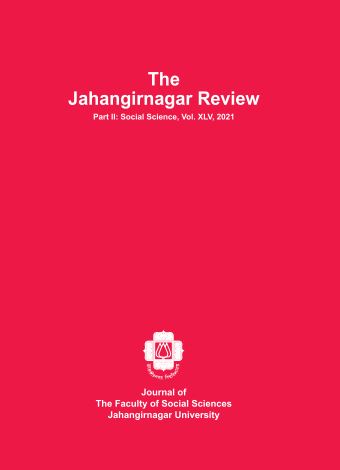Enabling environment for implementing IWRM in Bangladesh: A Policy Network Perspective
Main Article Content
Abstract
Integrated Water Resources Management (IWRM) is being implemented since 1990 to solve the water problems of Bangladesh. However, due to the environmental, developmental, and administrative challenges, the effectiveness of IWRM implementation is hampering. Bangladesh Government has formulated the National Water Policy (NWPo, 1999) and Water Act (2013) to reduce these challenges. Although both policies are significant in this regard, some contradictions in the policy are hindering its implementation. While some dministrative problems are acknowledged in the literature, little empirical research has been undertaken to provide insights into the strengths and weaknesses of the policy development processes and the implications for IRWM implementation. This paper uses Policy Network Analysis (PNA) to explore how the water policy development process affects policy implementation. This paper uses semi-structured interviews and document analysis to comprehensively understand how both policies were developed in Bangladesh, offering insights into how actor interactions support or hinder policy development and implementation. Research findings show that the policy development process is defined as flawed as some important water actors are not included in this process, and cooperation among the actors involved is not valid. There is a problem in power practice as the included actors do not have the same resource provider capacity, which has increased the interdependence of the minor actors in the policy network. Flawed policy process and the absence of local communities (women and NGOs) have blurred the rules and regulations regarding the mandate and responsibility of actors who affect the policy implementation.
In some cases, disclaimer rules and regulations limit the actor's access to the policy network processes. Findings suggest that a revision of existing policy and Act is needed to support an improved enabling environment for effective policy implementation in Bangladesh. Such an amendment needs to adequately consider the interactions, roles, and power of IWRM actors, highlighting the need for further study to identify adequate institutional arrangements.

